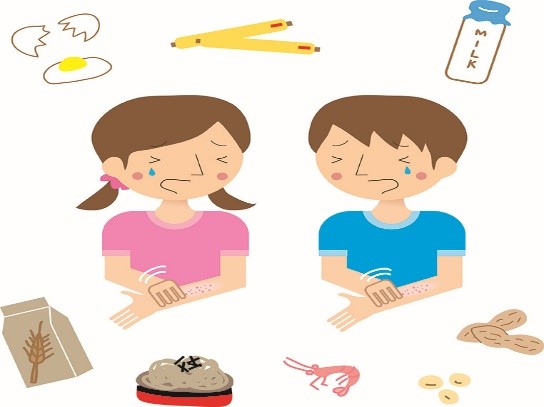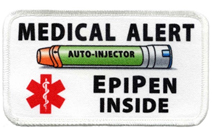Can Eating Allergens Prevent the Rise of Food Allergies in Today's children?
Do you have a new baby/ child in your family that has been diagnosed with a food allergy? Lately, an  infant or child being affected with a food allergy has become more common. In fact, the Center for Disease Control determined that food allergies in children have increased by 50% between years 1997 and 2015! What exactly is a food allergy? A food allergy is a medical condition in which exposure to a food triggers a harmful immune response. In most cases, an allergic reaction occurs because the immune system attacks proteins in the food that are normally harmless. The proteins that triggers an allergic reaction are called allergens.
infant or child being affected with a food allergy has become more common. In fact, the Center for Disease Control determined that food allergies in children have increased by 50% between years 1997 and 2015! What exactly is a food allergy? A food allergy is a medical condition in which exposure to a food triggers a harmful immune response. In most cases, an allergic reaction occurs because the immune system attacks proteins in the food that are normally harmless. The proteins that triggers an allergic reaction are called allergens.
Naturally, symptoms from a reaction can range from mild-severe and include itchy mouth, a few hives, throat tightening, and difficulty breathing. On the other hand, a more serious reaction can occur called anaphylaxis, which can be sudden in onset and cause death. That is where Epi pens come in handy, to prevent the serious reaction! Common food allergies that can cause serious reactions are milk, egg, peanut, tree nuts, wheat, soy, and shellfish.
You may wonder like myself, why are food allergies on the rise and more popular in the 21st Century. Through scientific research, Dr. Lakiea Wright, a physician at Brigham and Women's Hospital in Boston, has helped to determine several factors for the rising of food allergies:
- Timing of introduction of foods (late introduction to allergen foods).
- Dietary patterns (the high consumption of processed foods)
- Genes & environment (in utero exposures to allergens, including prenatal diet, pollution, and chemicals).
- Early antibiotic use as it may have an influence on the gut microbiota and likelihood of developing allergies.
However, do net fret, for help is on the way! The LEAP study concluded that peanut allergy was reduced by 79% in Israeli children of 5 years of age, who were given peanuts in infancy. Thus, American Academy of Pediatrics has released new guidelines in the prevention of peanut allergy: to begin exposure of common allergens as early as 4 months.
To further save the day or century, here are 4 tips to help prevent allergy in our children: 
- Introduce common allergies and sesame as early as 4-6 months with consultation from a Pediatrician.
- Reduce the ingestion of antibiotics if not medically needed
- Consume Processed foods less frequently 1-2x a week
- Most importantly expose the fetus to allergic foods through the maternal diet.
Yes! We all have at least one person in our family that has a food allergy. However, there is research being conducted to help stop the rise in food allergies. Even better interventions are being created and implemented to help determine the best way to inhibit the development of a food allergy in our children.
Sources:
https://edis.ifas.ufl.edu/pdffiles/FS/FS12300.pdf
https://www.niaid.nih.gov/sites/default/files/addendum-peanut-allergy-prevention-guidelines.pdf
https://www.foodallergy.org/life-with-food-allergies/food-allergy-101/facts-and-statistics
https://www.aap.org/en-us/about-the-aap/aap-press-room/Pages/AAP-Clinical-Report-Highlights-Early-Introduction-of-Peanut-Based-Foods-to-Prevent-Allergies.aspx
 OTHER LANGUAGES
OTHER LANGUAGES
 OTHER LANGUAGES
OTHER LANGUAGES